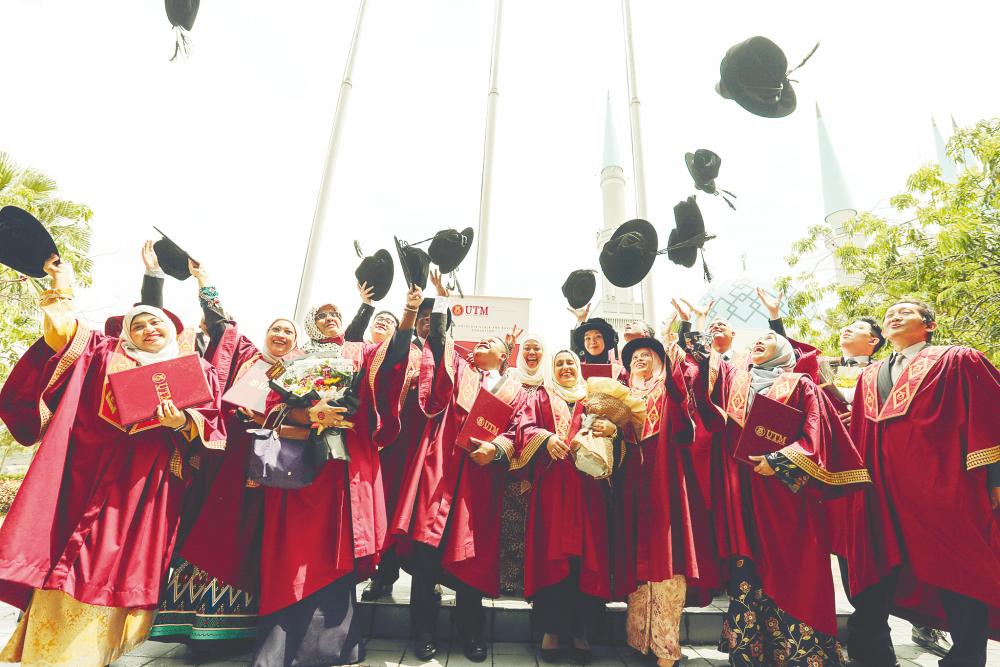PETALING JAYA: The Malaysian Employers Federation (MEF) is calling on the government to establish a national-level strategy to regularly update university curriculums based on industry requirements.
Its president Datuk Dr Syed Hussain Syed Husman said institutions of higher learning (IHL) should review the courses offered and drop irrelevant and outdated ones.
“As of the third quarter of 2024, some
1.95 million Malaysians were facing
skills-related underemployment.
“This indicates that a significant portion of tertiary-educated graduates are employed in jobs that do not fit their qualifications.
“This underemployment now affects 36.8% of the country’s tertiary-educated workforce, and the MEF is concerned that the mismatch between our graduates’ skills and job requirements poses challenges for them and employers.”
Syed Hussain said technological advancements, changing market conditions, and new business models are causing an evolution in the demand for specific skills.
Hence, IHL in emerging economies like Malaysia should act quickly to reflect such changes through their curriculums to ensure graduates are equipped with skills and knowledge that are in demand.
“Addressing skills-related underemployment is crucial for Malaysia’s economic growth as it ensures that the workforce’s potential is fully harnessed by local businesses and foreign investors, leading to enhanced productivity and competitiveness.”
Syed Hussain said the industry is seriously concerned over the competency levels of graduates who do not seem to have the specific technical or soft skills needed in the workforce.
“Having IHL regularly updating their courses in consultation with industry stakeholders will improve their graduates’ employability,” he said.
Syed Hussain added that there is a critical need for enhanced collaboration between IHL and the industry to ensure that graduates possess the required skill sets.
“To a certain extent, the IHL in Malaysia produce graduates with some skills that are required in the job market, but they fall short of requirements.
“This is proven by the fact that skills-related underemployment exists as a major problem, and from the statistics, IHL need to relook the relevance of their courses in tandem with job market requirements.”
Universiti Teknologi Mara (UiTM) academic development director Assoc Prof Dr Suriyani Ariffin said government intervention is critical to streamline educational offerings with job market needs.
Doing so can help ensure that academic programmes are aligned with industry requirements, promote skills development, and address gaps in the workforce.
“Additionally, the government can strengthen its role in facilitating collaboration between industry, academia, and society.
“UiTM typically review our courses every three to four years based on a programme’s duration.”
Suriyani said to help students transition into careers that match their qualifications, IHL ensure that the entry requirements for each programme align with learning outcomes and course objectives, right from the application and programme offering stages.
“This alignment helps ensure students are equipped with skills and knowledge that meet academic standards and industry requirements, facilitating a smoother transition into having sound careers.”
She said removing any programme calls for thorough analysis, particularly of student enrolment and whether the courses have been active or otherwise for more than two years.
Suriayni said instead of outright removal, UiTM might opt to enhance the programmes with updated, industry-driven requirements.
“UiTM has also established an academic appointment management system involving an industry advisory panel and alumni representatives to discuss current workforce needs and essential skills for employees.
“This ensures that the institution stays aligned with industry demands and prepares graduates with the relevant skills,” she said.









